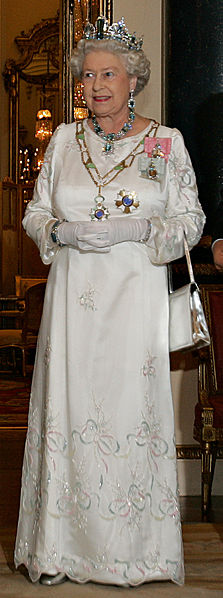Reactionary? You don't have to invite someone you don't like. And to call Prince Charles a reactionary is to do violence to the meaning of the term. If anything, he has displayed a rather droopy liberalism in recent decades. For Charles and his mother, the wedding signals the comeback of the British monarchy, which has suffered a brutal buffeting in the media. If you think about it, the marital track record of the royals in the past century, beginning with Edward VIII and the 1936 Abdication Crisis, has not been such a hot one. Matters, however, are looking up. There should be an extra spring in the step of the members of the House of Windsor. Annus horribilis is now being replaced by annus mirabilis in the overwhelmingly effusive reception that the newly minted Duke and Duchess of Cambridge are receiving.
The Monarchy's Comeback: the Royal Wedding
Annus horribilis is now being replaced by annus mirabilis.
 The republican impulse in England has always been something of a mystery to me. The UK has been shorn of so much so quickly—its empire, its self-confidence, its prosperity. The monarchy is its last calling card, the institution that makes it distinctive. Foreigners may pretend to be bemused by it, but royalty continues to command deference, even in America which ostensibly bridles at aristocracy—Thomas Paine declared "Of more worth is one honest man to society, and in the sight of God, than all the crowned ruffians that ever lived."
The republican impulse in England has always been something of a mystery to me. The UK has been shorn of so much so quickly—its empire, its self-confidence, its prosperity. The monarchy is its last calling card, the institution that makes it distinctive. Foreigners may pretend to be bemused by it, but royalty continues to command deference, even in America which ostensibly bridles at aristocracy—Thomas Paine declared "Of more worth is one honest man to society, and in the sight of God, than all the crowned ruffians that ever lived."
The marriage of William and Kate is the latest example of the special significance of the monarchy. Tamper with it at your peril. There's something heartwarming about seeing that the British can pull it off once again. Public ceremonies, grand weddings and funerals, are something that they pull off with a special panache. A constitutional monarchy, in other words, can add a dash of color to the dominant banalities of life in a democracy. Countries that don't possess one tend to be a little drab. Germany, for example, would probably have avoided Nazism had Kaiser Wilhelm not hastily abdicated in 1918. The presence of the Kaiser would have provided a measure of stability. The truth is that most democracies are incapable of pulling off what Walter Bagehot called the "dignified" aspect of government. The burden is too great, particularly in America where the president is supposed to combine the "efficient" and "dignified."
Kings and Queens embody the nation, with their bloodlines charted to show a continuous descent, in Prince Charles' case from Alfred the Great—the King or Queen, as the scholar Ernst Kantorowicz wrote, has two bodies—the physical one and the transcendent and eternal one that signifies a divine right to rule. In maintaining the monarchy, the Windsor's have a deft talent for reinvention. Things have certainly loosened up since the days of the early nineteenth century when Charles Greville could confide to his diary that "the Regent drives in the Park every day in a tilbury, with his groom sitting by his side; grave men are shocked at this undignified practice. And in World War I, when the name Windsor was adopted, Kaiser Wilhelm, a nephew of Queen Victoria, joked that he was eager to watch a performance of The Merry Wives of Saxe-Coburg-Gotha. In England the monarchy is hardly above the political fray. My friend Geoffrey Wheatcroft, an unfailingly elegant prose stylist whose essays you may have read in the National Interest, directed me toward an atrabilious piece in the Guardian by Martin Kettle, alleging that Prince Charles scotched the invitation of either Tony Blair or Gordon Brown to the festivities. According to Kettle,
Of course it is a snub. Of course it is deliberate. Not inviting Tony Blair and Gordon Brown to the royal wedding, while inviting Lady Thatcher and Sir John Major, is a cold, calculated act of high establishment spite against Labour. The failure to correct it—especially when the invitation to the official representative of the Syrian tyranny was so speedily withdrawn—only confirms the miserable, petty, ill-advised disdainful nastiness of the original deed. And I blame Prince Charles. His reactionary fingerprints are all over the wedding's programme of events.
